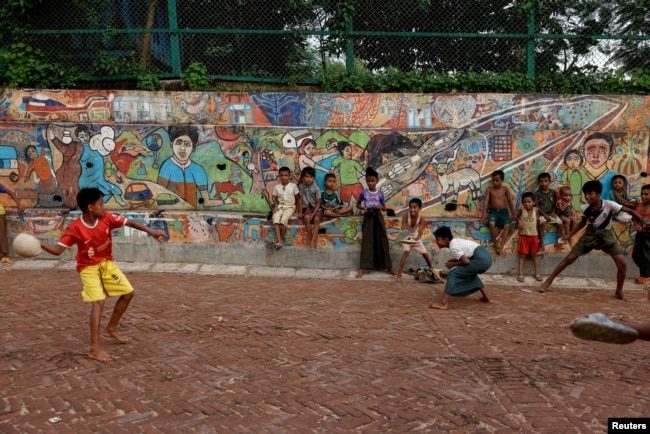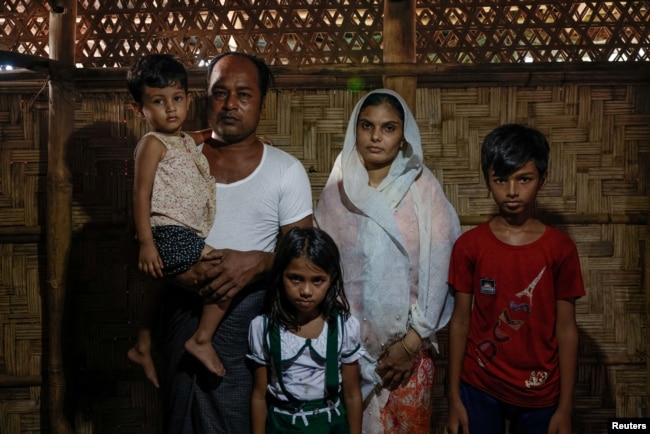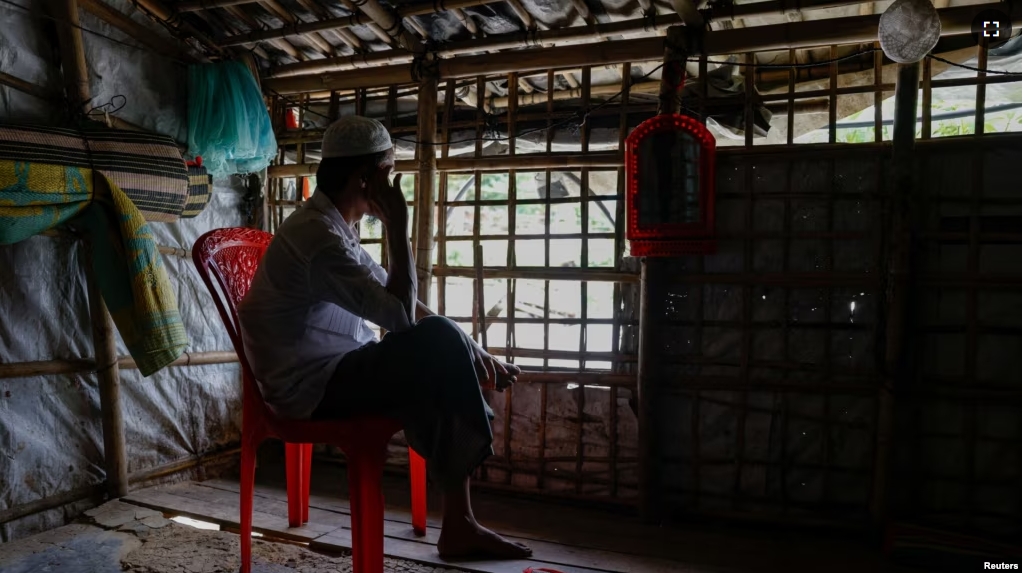The Rohingya are an ethnic group from Myanmar. They have been displaced from that country and many now live in some of the world’s largest refugee camps in neighboring Bangladesh.
Recently, Reuters news agency reported that thousands of Rohingya fighters are coming out of the camps and getting involved in conflicts in the area. Reuters spoke to people who said that between 3,000 and 5,000 fighters have joined armed groups.
One example is 32-year-old Rafiq who fled Myanmar in 2017. He left a huge refugee settlement in southern Bangladesh in July. He crossed back into the country that he fled with the goal of fighting in its civil war.
Thousands of Rohingya militants like Rafiq have come from camps with over a million refugees in Cox’s Bazar. Aid agencies and individuals told Reuters that recruitment by militant groups and violence has increased sharply this year.
“We need to fight to take back our lands,” said Rafiq. He spent weeks fighting in Myanmar before returning after he was shot in the leg.
“There is no other way.”
The Rohingya in Bangladesh
The Rohingya are mainly a Muslim group. They started fleeing in large numbers to Bangladesh in 2016 because of violence there. The Rohingya are believed to be the world’s largest stateless population.
However, a rebellion in Myanmar has gained support since the military seized power from democratically elected leaders in 2021. The rebellion involves several armed groups inside the country. Among them are the Arakan Army ethnic militia which is active in Rakhine State. Now, Rohingya fighters are joining the fight on the side of the military government.
Shahab Enam Khan is an international relations professor at Bangladesh’s Jahangirnagar University. He said that the two largest Rohingya militant groups are the Rohingya Solidarity Organization (RSO) and the Arakan Rohingya Salvation Army (ARSA). Khan said they do not appear to have a lot of support in the camps in Cox’s Bazar.
But Khan said dissatisfied refugees could be pulled into militant activities and pushed further into criminal activities. That could then involve other countries in the area as well.

Fight for Maungdaw
Rohingya militant Abu Afna took a boat from near the camps to Maungdaw in western Myanmar during the mid-year rainy season. He said he was housed and armed by the Myanmar military government.
“Our main enemy isn’t the Myanmar government, but the Rakhine community,” Abu Afna said.
The military government provided Rohingya with weapons, training and money, Abu Afna said. It also offered the Rohingya a Myanmar citizenship card.
Citizenship is important to the Rohingya because Myanmar has long denied the group citizenship in Myanmar. However, in the refugee camps in Bangladesh, they cannot hold jobs.
“We didn’t go for the money,” Abu Afna said. “We wanted the card, nationality.”
A U.N. official and two Rohingya fighters said many were forced to fight in the conflict in Myanmar, including children as young as 13.
Living in fear
In Rakhine state, militants have struggled to push back the heavily-armed and better prepared Arakan Army. But the battle for Maungdaw has continued for six months and Rohingya fighters said they have slowed the rebel offensive.
Bangladesh tried to organize talks between Rohingya fighters and the Arakan Army earlier this year, but they did not succeed.

Back in Cox’s Bazar, there is unrest in the camps. The Rohingya militant groups, the RSO and ARSA, are competing for influence. Fighting and shootings are common. People in the camps are fearful, and the fighting is disrupting humanitarian efforts.
John Quinley is director at the human rights group Fortify Rights. He said violence was at the highest level since the camps opened in 2017. The nonprofit group reported that armed groups have killed at least 60 people this year, while capturing and torturing opponents and using threats “to try to silence their critics.”
Wendy McCance is director of the Norwegian Refugee Council in Bangladesh. She warned that money given by international groups for the camps might end within 10 years. She called for refugees to be given the chance to work for a living. If not, there will be many young men without jobs who could join violent groups.

Sharit Ullah is a Rohingya man who escaped from Maungdaw with his wife and four children in May. Now they are in the camps at Cox’s Bazar. He said he was struggling to get food. The former rice and shrimp farmer said his biggest worry is the safety of his family. “We have nothing here,” he said, “We live in fear.”
I’m Mario Ritter Jr. And I’m Jill Robbins.
Devjyot Ghoshal,Poppy McPherson reported this story for Reuters. Jill Robbins adapted it for Learning English.
_________________________________________
Words in This Story
recruit – v. to find suitable people and get them to join a company, an organization, the armed forces, or the like
disrupt – v. to cause (something) to be unable to continue in the normal way; to interrupt the normal progress or activity of something
